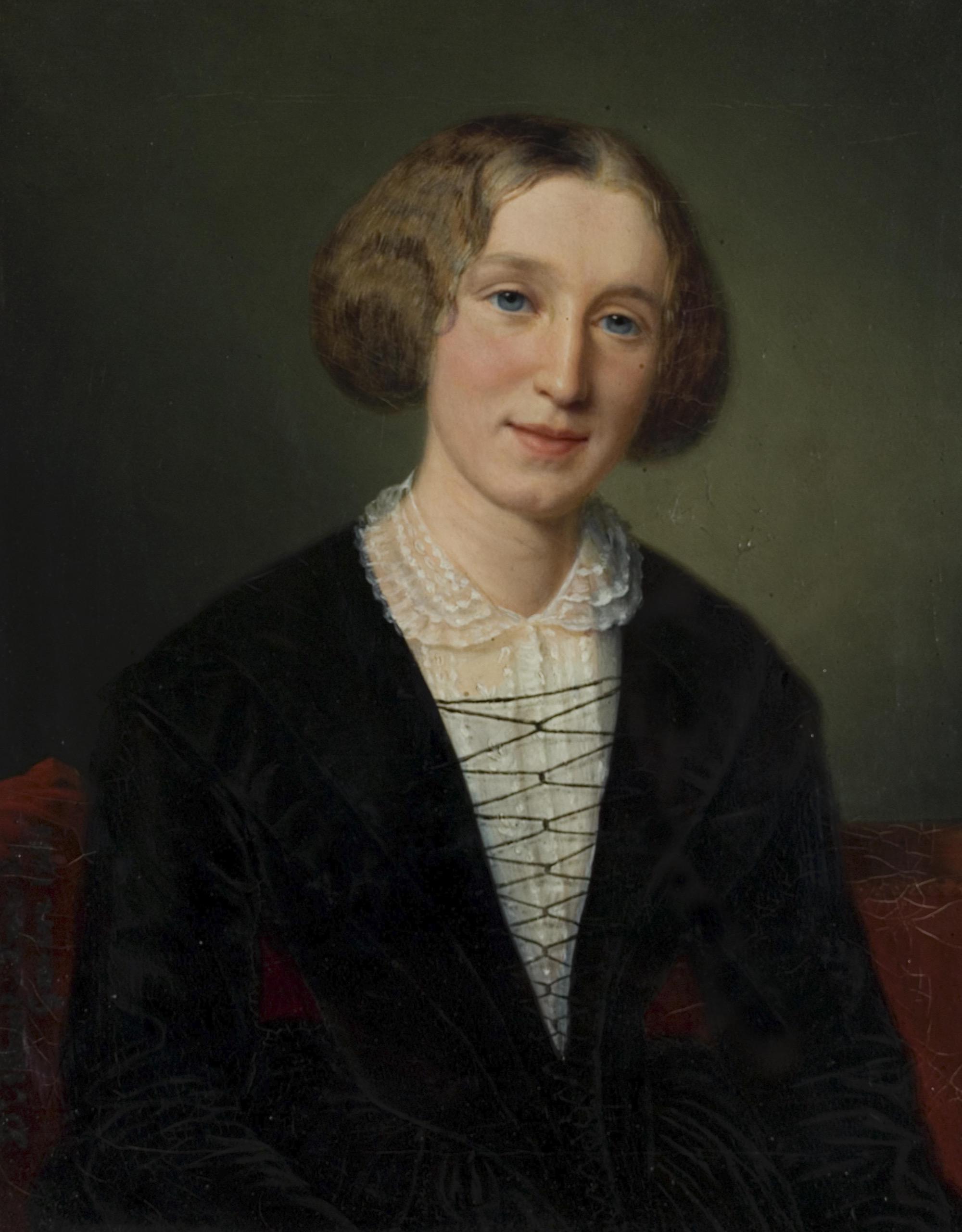Few philosophers and scholars in the Anglophone world have heard of or have known about the Cuban presbyter/philosopher Félix Varela y Morales. Even those who might have come across his name in a 1997 postage stamp honoring him as part of the Great American Series collection are probably unaware of his contributions to our American culture, including his selfless commitment to helping mostly the newly arrived dispossessed members of the Irish community of New York during the nineteenth century. Varela—who crossed the Atlantic to escape from political oppression at home—engaged in a dialogue among expatriates and also among US writers and scholars, thereby contributing to the formation of an eclectic multiethnic culture.
Here, political exiles (like Varela) found a social milieu where they could freely express their iconoclastic political ideas, including criticizing and advocating against tyrannical regimes in the Americas without jeopardizing their lives or their freedom. In Varela’s case, he never went back to Cuba and died in St. Augustine, Florida, at the age of sixty-five in 1853.
Until recently, the intellectual and scholarly contributions of nineteenth century Latino/a political exiles who chose to live in the U.S. have been neglected. Fortunately, contemporary Latino/a scholars, such as Nicolás Kanellos, Rodrigo Lazo, and Carmen E. Lamas, have engaged in an excavation project of prominent Latina/o writers who resided in the nineteenth century U.S. Accordingly, their transatlantic voices have started to be heard, and justice is beginning to be done to their substantive contributions to our culture. As a Cuban priest, philosopher, and political activist in the U.S., Varela’s voice is prominent among them.
Félix Varela y Morales was born on November 20th, 1788, in Havana, Cuba. As his leading biographer, José Ignacio Rodriguez explains, he was a polymath, priest, philosopher, pedagogue, theologian, and an elected representative of Cuba to the Spanish Cortes in 1821 who initiated a profound philosophical and pedagogical reform in nineteenth century Cuba. Varela studied at the Royal and Conciliar College and Seminary of San Carlos and San Ambrosio of Havana (henceforth, San Carlos Seminary). In the same seminary, the Bishop of Havana, Juan José Días de Espada y Fernández de Landa, appointed Varela as a young professor, encouraging him to continue reforming the teaching of philosophy and natural sciences in the light of modern philosophy and science. By embracing the modern inductive method in science and eclecticism in philosophy, his teaching in the seminary contrasted with the teaching of late scholasticism and its outmoded appeal to authority, i.e., the controversial magister dixit, at the Royal and Pontifical University of St. Jerome of Havana.
In March 1820, King Ferdinand VII of Spain was forced to restore the Constitution of 1812—the same constitution that he abrogated in 1814. There was a call to reconvene the Spanish Cortes, and Varela was elected delegate in 1821 to represent Cuba in the Cortes. However, prior to his departure, Bishop Espada asked him to establish a course on constitutional law at the San Carlos Seminary. Since this was a challenging new course having no precedent in Cuba or Latin America, there was no textbook on this subject matter. Consequently, he was asked to promptly write a textbook for it: Observaciones sobre la constitución de la monarquía española. While this was a liberal text defending the principles of natural rights and arguing against the ills of tyrannical governments, he did not yet embrace the practice of religious tolerance, which was part of the liberal creed in the Anglophone world. Nevertheless, at the Cortes, the philosopher/priest reluctantly turned politician defended liberal projects favoring Cuba’s autonomy, promoting the recognition of the independence of American colonies from Spain, and demanded the progressive abolition of the odious practice of slavery in Cuba.
Regrettably, the Cortes were disbanded and Varela, fearing for his life, chose to look for political asylum in New York. Once in the U.S., and disenchanted with Spain’s despotic monarch, he moved to Philadelphia where in 1824 published the first three volumes of the newspaper El Habanero: Papel Poliítico, Científico y Liiterario discussing new scientific and literary developments but also promoting Cuba’s independence from Spain. Meanwhile, back in New York, he continued publishing El Habanero and translated Thomas Jefferson’s Manual of Parliamentary Procedures with his own commentaries showing his commitment to the values of American republicanism.
As vicar general for the archdiocese of New York, he founded several journals among which are The Truth Teller (1825–1855), New York Catholic Diary (1835–1836), The Catholic Observer (1836–1837), The Catholic Expository and Literary Magazine (1841–1843), and The Catholic Expositor (1843–1844), to mention only a few. In these publications, Varela wrote essays not only defending Catholic orthodoxy, but also philosophical essays, such as his Essay on the Doctrine of Kant, and Letter of an Italian about the doctrines of Félicité de Lamennais, an influential and controversial nineteenth century French priest and philosopher who abandoned the priesthood in opposition to the Pope. Varela argued against both. According to him, Kant’s transcendental philosophy led to epistemological skepticism and pantheism. Similarly, he contended that Lamennais’s appeal to the general consent of the majority as the only criterion of truth led him to implicitly accept pantheism, too.
Varela published several works that transformed the teaching of philosophy and natural sciences in Cuba. In 1812, he published the first two volumes in Latin of his Instituciones philosophiae eclecticae [Lectures on Eclectic Philosophy], but, for the first time, in 1813–1814, he published the third and third volumes in Spanish. In this work, he embraced the eclectic method by choosing compelling arguments independently of their provenance, thereby avoiding the anachronistic magister dixit of late scholasticism. Also, his Elenco de 1816 [Notes of 1816], he continued his anti-authoritarian argument by contending that “the Patristic Fathers have no authority on philosophical matters, and we ought to focus only on the reasons that support such matters.” In the same work, he went even further, advocating for the first time that, like men, women should be instructed in the natural sciences.
Subsequently, in 1818, Varela published his magnus opus Lecciones de filosofía in three volumes. In part II of this work, he anticipated the contemporary global debate about removing monuments built to honor vicious ideas, including those celebrating former slaveholders and tyrants. He argued that “The people would have wished to destroy by fire the monuments and statues built to honor tyrants.” In 1819, he published his Miscelánea filosófica in Cuba continuing his defense of inductivism over the Aristotelian syllogistic method, including defending a pragmatic approach similar to the one found in William James’s Pragmatism (1907). Like the American Pragmatists, he contended that no one should bother with explanations of state of affairs whose possible truth or falsity might have no practical results. If that were to be the case, the issue in question would be idle or just a philosophical curiosity.
Later he published a second edition of his Miscelánea in Madrid 1821, and a third edition in New York 1827. He worked and published an expanded edition of his Lecciones de filosofía while residing in Philadelphia in 1824. His Lecciones, like his Miscelánea, were popular not only in Cuba but elsewhere in Latin America. That explains why he revised and updated them in a third edition in 1828, a fourth edition in 1832, and a fifth (and last edition) in 1841.
While residing in New York, he published his Cartas a Elpidio [Letters to Elpidio]: the first volume was published in New York in 1835, and the second volume was published in Madrid, Spain in 1836 (and in New York in 1838). These letters were addressed to the Cuban youth, but not only to them, because he dedicated his fifth letter to religious toleration. Given the prevalent intolerant sentiment of the Protestant majority at the time in New York, Varela’s letter defending religious toleration from a Catholic perspective was innovative and courageous. He expected that his Cartas were going to have a positive impact, especially among the Cuban youth, but, unfortunately, his expectations never materialized. So disheartened was Varela about the poor reception of his Cartas on the island that, while he had planned to write a third volume, he never managed to do so. Or, if he did, it has not been found.
Varela was one of the very few, if any, nineteenth century Latino philosophers who wrote in favor of religious toleration. He defended religious tolerance as a means to maintain social peace. He understood that without social peace the evangelical work of the Church was virtually impossible to carry out. His views on religious tolerance, nonetheless, evolved over time. While teaching in the San Carlos Seminary, in his Elenco de 1816 [Notas of 1816] sec. 52, he wrote, “against advocates of religious tolerance we defend the view that not all religions are good because the Catholic religion is the only true one.” However, when he became a political exile in the US, he developed a broad liberal view of religious toleration. He admired the broad legal tolerance existing in the US to the extent that he wrote: “I do not believe that there is any other country in which this point is observed so strictly, and this is the basis of its peacefulness.”
Varela’s change of heart about religious toleration could be seen as a result of his personal experience and his pragmatic approach, be that in philosophy, science, or politics. He understood that serving those in need was of paramount importance for him; however, without social peace that was infeasible. As a political exile living in New York in 1838, he changed his previously intolerant view for a broad liberal view of religious toleration.
Of course, having experienced the religious diversity in New York where Protestants and Catholics maintained a somewhat peaceful but tense modus vivendi, Varela recognized the virtue of religious tolerance for maintaining and even fomenting a peaceful coexistence as stated above. And yet, he was well aware that, while religious toleration was legally recognized, their modus vivendi was precarious at best. This was the case because anti-Catholic sentiment among the Protestant majority was widespread resulting at times in mob violence, such as the one that burned down St. Mary’s Church in New York City in 1831.
Like Varela, Latino philosophers, such as the Venezuelan Andrés Bello and the Argentine Juan Bautista Alberdi, displayed a virtue that oftentimes has been ignored—namely, their pragmatic eclecticism. Rather than solely focusing on philosophical speculation for its own sake, they used their philosophical skills to try to improve their societies, be they as pedagogues, politicians, and/or diplomats.
Varela’s free spirit in philosophy, science, and politics can be a role model for public intellectuals. He opposed the authoritarian practice of the magister dixit. Also, he embraced modern science and philosophy to overcome social prejudices and superstitious beliefs in society. Moreover, he advocated against the despicable practice of slavery, while being a paladin for Cuba’s and Latin American nations’ independence from Spain. At a time when women were conceived of as being unfit for higher education, he courageously recommended that they, like men, be instructed in the natural sciences. He was an advocate against despotic and tyrannical regimes, thereby favoring a republican form of government.
Given the present wave of authoritarianism at home and abroad, we can certainly learn from Varela’s argument against the controversial magister dixit in philosophy and, most importantly, from his argument against tyranny in politics. And yet, we need not forget that his faith was a source of spiritual strength and a pole star for his philosophy. As a result, he was an admirable public philosopher without neglecting his faith.
The post Félix Varela: A Latino Defender of Modern Philosophy without Neglecting his Faith first appeared on Blog of the APA.
Read the full article which is published on APA Online (external link)







